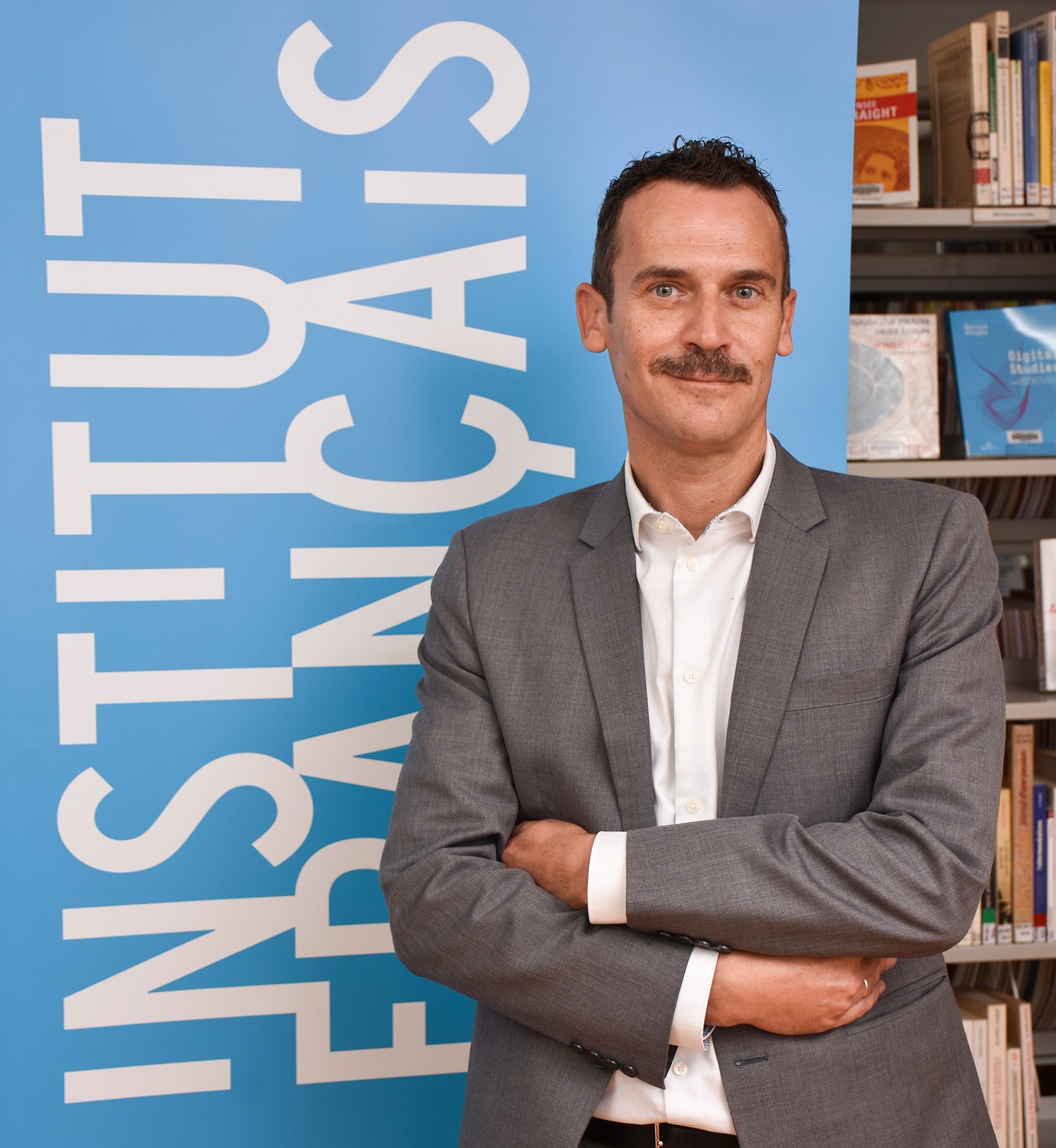It is true that the French Institute of Serbia is celebrating 70 years, but it remains younger and more dynamic than ever, constantly reinventing itself, heading henceforth towards a „Third Location“ logic.
On 21st of June we will also launch the broadcasting of a series of video messages called „OUR joint history“, celebrating the scientific cooperation in the field of human sciences between French and Serbian researchers. Stay tuned on our social networks to discover those stories!

How do you plan to mark this jubilee and what programs would you especially emphasise?
Actually, we will celebrate the anniversary through this whole year! A big celebration is planned on June 21st, with multiple artistic and culinary activities outside, in front of the French institute, in a festive way. But there were as well events such as „Journées de Molière“ in the past, that were part of the celebration. And we expect to host in September a very interesting and interactive exhibition about the joint archaeological work that has been done during last 20 years in Caricin Grad, a very beautiful collaboration between Prof. Dr Vujadin Ivanisevic from the Academy of Arts and Sciences of the Republic of Serbia and Prof. Dr. Catherine Vanderheyde, from the University of Strasbourg. This exhibition should travel from Belgrade to Leskovac and also in France in Paris and Strasbourg. I’m quite excited about this project.
And finally a quite ambitious project is to expose some pictures from the long history of the former French cultural centre, nowadays the French Institute: this project is ongoing, a part of it will be presented on June 21st, but for this one too, stay tuned on our social networks this summer to follow this very rich history…
How do you see the educational, science and University connections between Serbia and France nowadays?
Every year, between 250 and 300 Serbian students contact with Campus France space in Serbia to get information about studies at universities in France and about 650 Serbian students choose France as their study destination because of the quality of its higher education, the excellency of its diplomas and the French influence in all scientific, cultural, artistic and professional domains. Even during this period, difficult because of the global health crisis, Campus France space in Serbia has continued to maintain information sessions and hosted on line Serbian students who wish to continue their higher education in France, in order to provide them counsel and optimal orientation.
We want to reinforce even more the relations between researchers both from France and Serbia and to develop academic cooperation. For this reason, a call for proposals entitled « Higher education in Western Balkans » was launched by French Ministry for Europe and Foreign Affairs. This project aims to place higher education and the research in the centre of French influence diplomacy. It will foster the launch of initiatives of academic cooperation between French institutions and research centres and to allow to those which already started to be supported in Serbia and in Western Balkans, by the promotion of French pedagogical engineering, while keeping a European dimension of it all.
We promote a model of inclusive cooperation, which embeds all parts. We work with national institutions, civil society organizations as well as European and international partners
French institute works with both official institutions in Serbia and NGO sector as well. What are the most important aspects of those collaborations?
We promote a model of inclusive cooperation, which embeds all parts. For this reason, we work with national institutions, civil society organizations as well as European and international partners. We aim to strengthen bilateral links between artists, scientists, academic personnel, students and young workers, teachers… In order to do that, we welcome any initiative representing an innovative, inclusive methodology, able to defend our thematic priorities, which are, in the frame of the process of Serbia’s European integration, the fight against any form of discrimination and particularly those regarding women or LGBTQIA+ persons, the environmental protection and the fight against climate changes, the reconciling between citizens of ex-Yugoslav states and the promotion of the assets of the youth.
How long have you been in Serbia so far and what are your most important personal goals during your mandate here?
I arrived in Serbia almost four years ago and I’m here at the end of my mandate. Those years were extremely rich and exciting and they allowed me to meet an incalculable number of exciting, passionate and very active personalities. My goal was to empower university and scientific cooperation, and, for this reason, I’m happy to find that despite the global pandemic, their number and quality have increased. I wanted also the French Institute of Serbia to take back a more important place alongside civil society organizations and, particularly, actors and actresses of fights against discrimination.
I’ll keep an emotional souvenir of expositions that we welcomed in our premises on the occasion of Pride parade in September, in partnership with the association Da Se Zna or the crew of Belgrade Gay Pride. I think that these cooperation, these new habits of working together with NGOs, will continue and become more intense in the future.